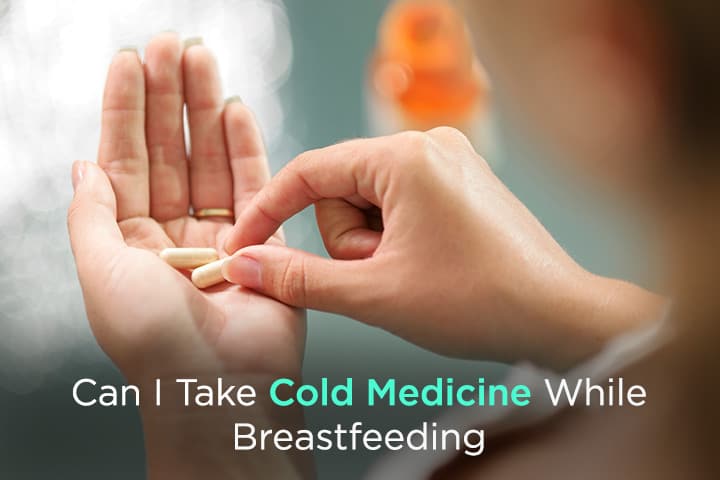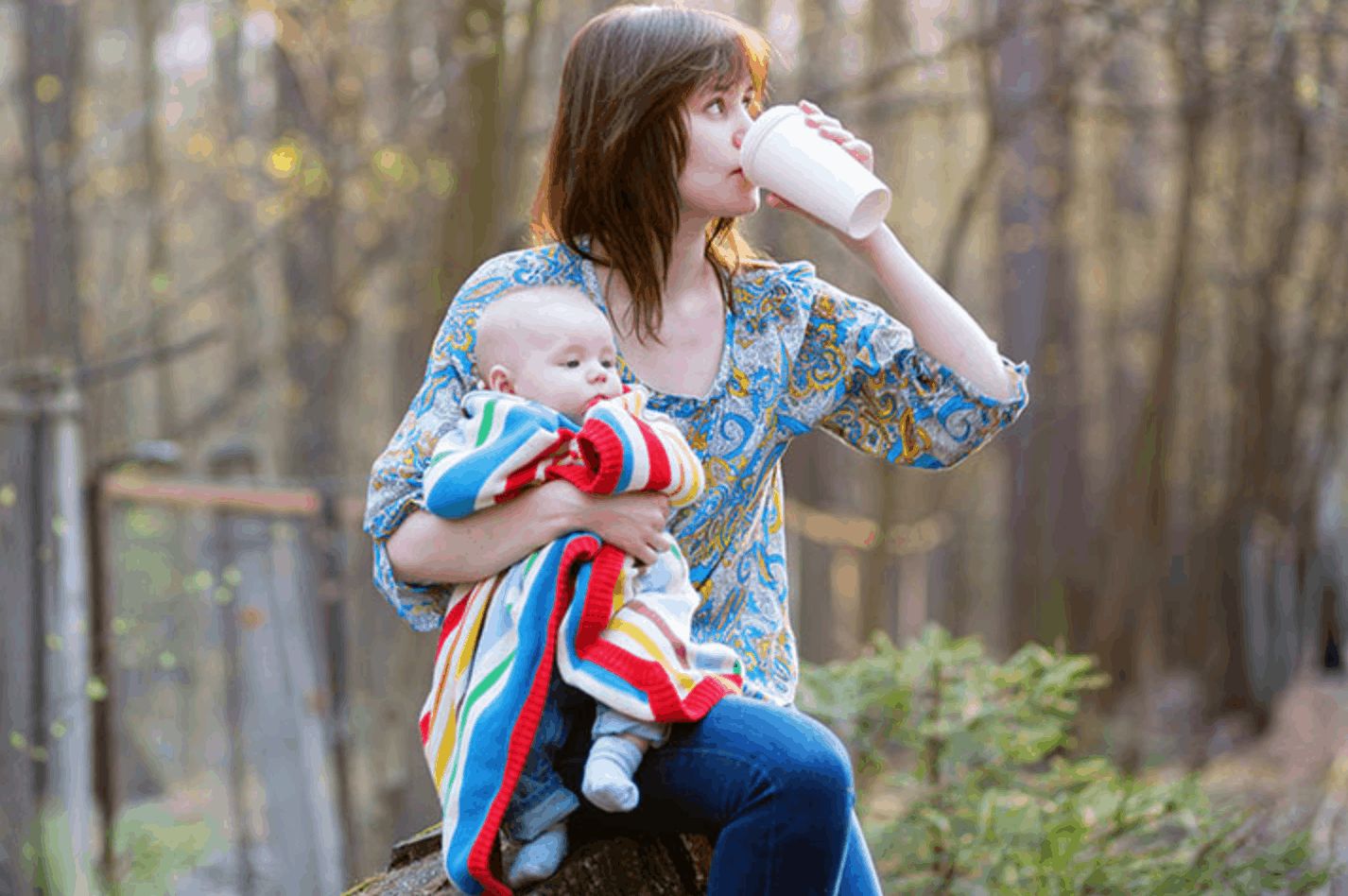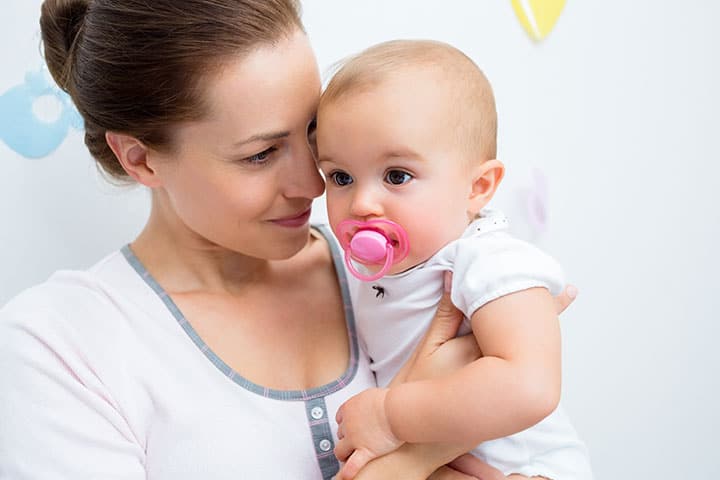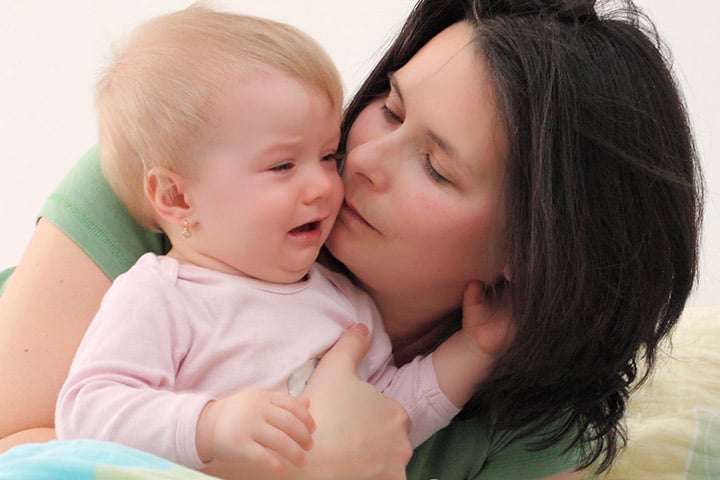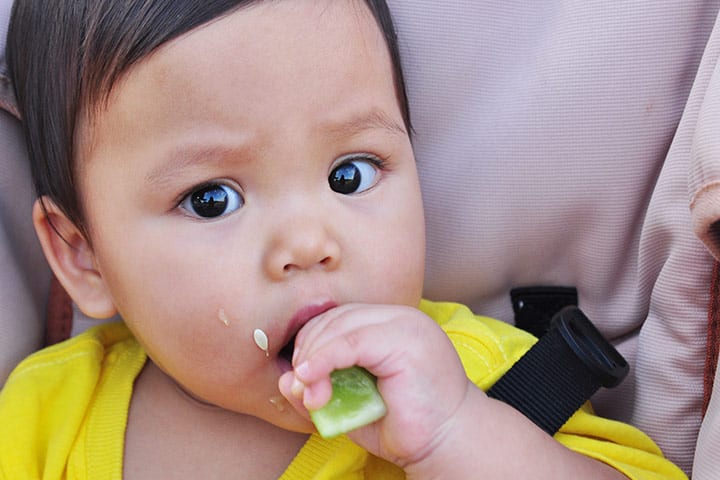Clara has had a severe cold and an irritating headache. However, the cold and stuffy nose don’t bother her as much as the medication. She isn’t sure if she should opt for medication as her baby is still breastfeeding. If she doesn’t control the cold, her baby might get it from her? And if she uses medication for cold, it might affect the little one by passing through the breastmilk.
If you, too, are in a similar dilemma, then MomJunction can tell you what you should do as we help you know if it is safe to take medicines for cold when you are breastfeeding your baby.
Is It Safe To Breastfeed When Suffering From Cold?
It is entirely safe to breastfeed your baby when suffering from cold (1) or even cold and flu together (2). Cold can be of several types such as one that affects the sinus, cold that causes a headache (called head colds), and one that leads to flu (which is the most severe). Irrespective of the type of cold, the body detects the infection and attacks the pathogen through antibodies, which are passed to your baby through the breastmilk, shielding him from the pathogens (3). Thus, breastfeeding during cold is a good way of protecting the baby since the little one receives bonus antibodies through the breastmilk.
Precautions To Be Taken When Breastfeeding With Cold
While the breastmilk transfers only the antibodies, the air you breathe can be a carrier of pathogens. Hence, you must be cautious if you are suffering from cold and breastfeeding your baby:
-
- Wash hands before holding the baby: Using a disinfectant soap, wash your hands thoroughly to eliminate any pathogens on your hands, before holding the baby. Also, wash hands before handling the baby’s items to prevent the transfer of pathogens on to them.
- Use a facemask while breastfeeding: A face mask will prevent the transmission of pathogens through air if you accidentally sneeze or cough while breastfeeding.
- Limit close contact with the baby: We know you love giving that good night kiss to your little one but refrain from doing so until the cold has been cured. Do not cuddle with a baby unless he needs physical contact for reassurance. And wear a face mask before holding him close.
Precautions go a long way in taking care of the baby. But in case you need medication, you must know about the right one to keep your baby away from any side-effects.
Is It Safe To Take Medicines For Cold When Breastfeeding?
There are several medicines for cold and its symptoms of flu and cough. However, some drugs could be harmful to the baby.
Safe Cold Medicines When Breastfeeding:
Following is the list of cold medicines that are safe to use when breastfeeding :
1. Acetaminophen/ paracetamol
Tylenol, which is an acetaminophen or paracetamol, can be taken during breastfeeding. Acetaminophen, an analgesic, is the active compound that relieves you from pain, inflammation, and fever. Besides Tylenol, the analgesic is present in Panadol and Crocin too.
Acetaminophen can pass into breastmilk but does not harm the infant (4). It is an over-the-counter (OTC) cold medicine for nursing mothers.
2. Ibuprofen
Ibuprofen goes by brand names such as Advil or Motrin and is safe for a lactating mother. The American Academy of Paediatrics considers the medicine safe for the baby (5). Ibuprofen is a nonsteroidal, anti-inflammatory drug (NSAIDS), which reduces pain and inflammation, and brings down high fever. It can be used for a headache, cold with a sinus infection, and flu.
Ibuprofen, although OTC, should be consumed only after a doctor’s consultation as it is not recommended for people suffering from stomach ulcers and asthma as it can worsen the condition (6). Ibuprofen can pass into breastmilk, but in micro quantities that do not affect the baby.
3. Dextromethorphan
It is a cough-suppressing compound found in several OTC cough and cold medicines. Dextromethorphan is safe for lactating mothers and the baby (7). However, it should be avoided by mothers with asthma, diabetes, liver disease, or those suffering from chronic bronchitis.
4. Bromhexine and guaifenesin
These are mucolytic cold medicines, also known as expectorants, which provide relief from a chesty cough. Here, the mucus in the lungs is loosened by the body through the coughing reflex. Bromhexine and guaifenesin work great to cure a chesty cough and are safe for the mother and child (8). These are not OTC drugs and should be taken only if the doctor prescribes them.
5. Amoxicillin
Amoxicillin is an antibiotic that is prescribed for the treatment of cold and sinus infection (9). It is safe for the mother and child. There have been isolated cases of side effects among breastfeeding babies, but the effects are rare and resolve without any harm. The American Academy of Paediatrics considers the medicine safe during lactation (10).
6. Zinc gluconate
It is a zinc compound that is used in OTC medicines such as Cold-eeze and Zicam. The compound is administered through the nose (as gel) or through the oral route in the form of tablets. Nasal application, limited to 12mg a day (11), by the mother is safe for the infant due to its topical and localized application (12). Though an OTC drug, a doctor must be consulted before taking this medicine.
7. Chlorpheniramine and hydroxyzine
They are referred to as antihistamine drugs and are used to treat runny, blocked, or stuffy nose caused by an allergy. These medicines could be prescribed during allergic rhinitis, also called hay fever. Chlorpheniramine and hydroxyzine are considered safe while breastfeeding since a very small quantity gets transferrednto the breas milk. A study found isolated cases of mothers reporting colic, irritability, and drowsiness in their babies after theydtook these drug4). However, researchers noted that the conditions were less intense and resolved without any medical intervention and it was concluded that these drugs can be used under medical supervision (13).
Unsafe or Potentially Harmful Cold Medicines During Breastfeeding:
Medications you must be wary of during breastfeeding are:
1. Aspirin
Aspirin may have multiple medical benefits including alleviating cold, but a lactating mother should avoid it. It can cause acidosis in infants, a condition in which the kidneys are unable to maintain pH levels in the blood, making it more acidic. Aspirin may even cause Reye’s syndrome in infants where the blood thins and the organs such as brain and liver begin to swell (14).
2. Codeine and dihydrocodeine
Recent research suggests that codeine could be harmful (15). It is an analgesic, which is combined with other safe analgesics such as acetaminophen to be used against cold and cough medication. A chemical variant of the compound is called dihydrocodeine, which has a higher therapeutic efficacy.
Codeine or dihydrocodeine, when consumed converts to morphine in the liver, with profound effects on the central nervous system. Morphine passes into the infant’s body through breastmilk and makes him drowsy causes diarrhea, and weakness due to the accumulation and slow breakdown in the infant’s developing liver. Codeine with breastfeeding is a definite no-no and should be completely avoided.
3. Pseudoephedrine
Pseudoephedrine is a decongestant that helps in mitigating mucus accumulation in the sinus and nasal passage . Sudafed and Zyrtec D are two brands containing pseudoephedrine. It has no adverse effects on breastfeeding babies but reduces the production of prolactin hormone in the mother (16), which leads to a decrease in milk production by 24% (17). The baby may be underfed, resulting in temporary malnutrition and general irritability due to hunger.
4. Phenylephrine
Phenylephrine is a decongestant that constricts the inflamed blood vessels and reduces stuffiness in the nose. Dayquil cold and flu contains phenylephrine, and has similar effects as pseudoephedrine. Though this hasn’t been extensively researched, it is believed to reduce milk production. The drug is not recommended as it may result in drowsiness in the infants (18).
5. Xylometazoline and oxymetazoline
The two common ingredients in nasal sprays are used to relieve stuffy and blocked nose through the constriction of inflamed blood vessels. There isn’t enough evidence on its safety for the mother and baby hence it is advised to stay away from these medications or consult a doctor (19).
If the baby shows side effects or displays an abrupt change in feeding or sleeping schedules, then take him to a doctor immediately.
If you are not sure of the safety of drugs, and do not want to take a risk, then go for natural remedies. They are safe for you and the baby too.
Home Remedies For Cold When Breastfeeding
Here are a few simple home remedies to get rid of cold and are completely safe for the mother and the breastfeeding infant.
- Steam inhalation: It is the best way to relieve head cold. Boil water in a deep dish and place it in front of you. Drape a towel over your head in a manner the steam does not escape. Inhale deeply for five minutes with 30-second breaks. You can do it any number of times in a day.
- Salt water gargles: Heat drinking water till it is lukewarm and add three pinches of salt. Take a large sip and gargle your throat for 15 seconds before expelling it. This is an ideal remedy for a sore and painful throat.
- Consume warm/hot liquids and food: Have hot stuff such as tea, chicken soup, and rice and milk porridge. Warm liquids prevent a chesty cough and cold. Warm foods loosen the phlegm, making breathing easier.
- Use wet wipes: If cold is accompanied by fever, then use wet wipes or damp cloth to bring down the temperature.
- Stay hydrated and rest: Drink plenty of water since water helps regulate body temperature and humidifies the mucus lining of the respiratory system.
Being cautious helps you wade through the cold. Cold medicines can help speed up the recovery but should only be consumed under medical supervision. Continue normal breastfeeding, since it is the safest and the best way to make your little one build immunity!

